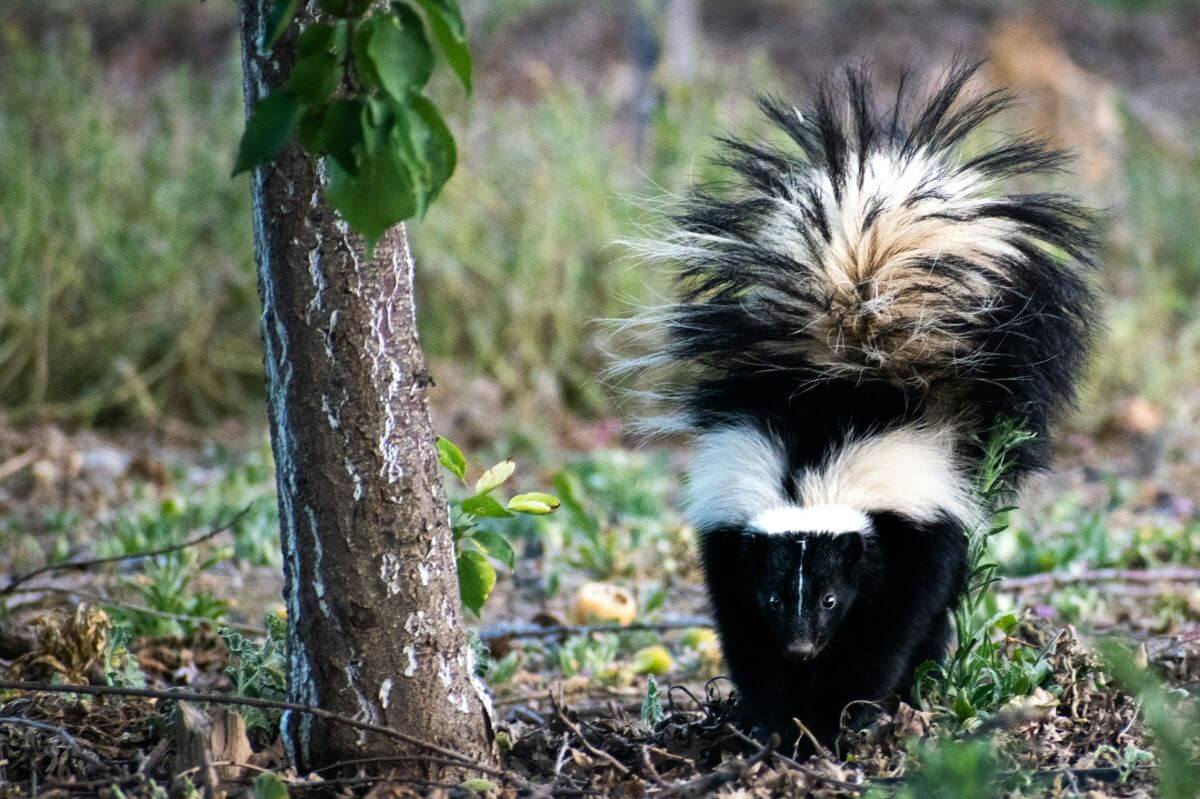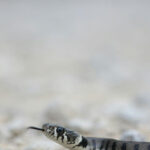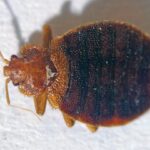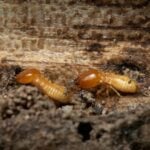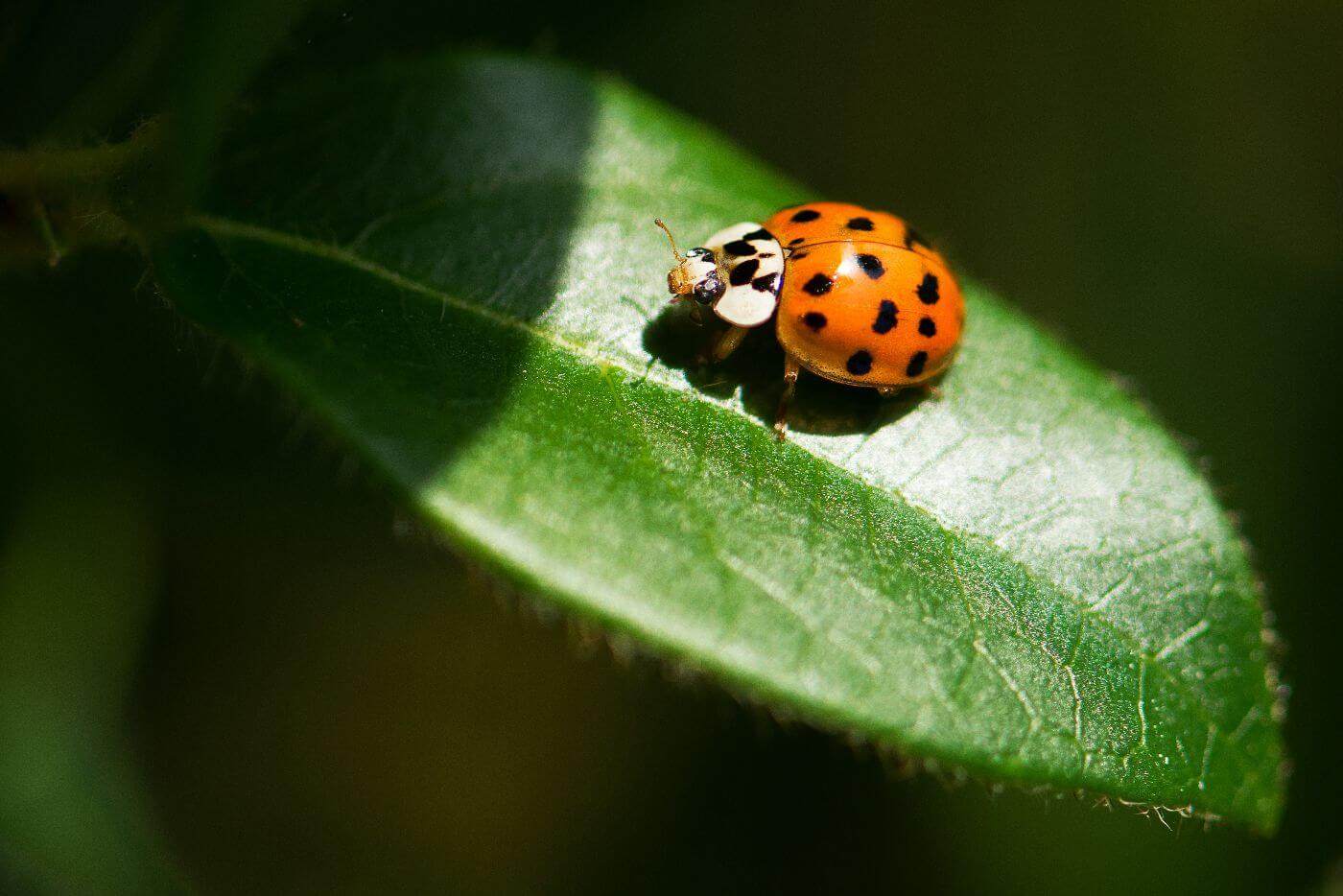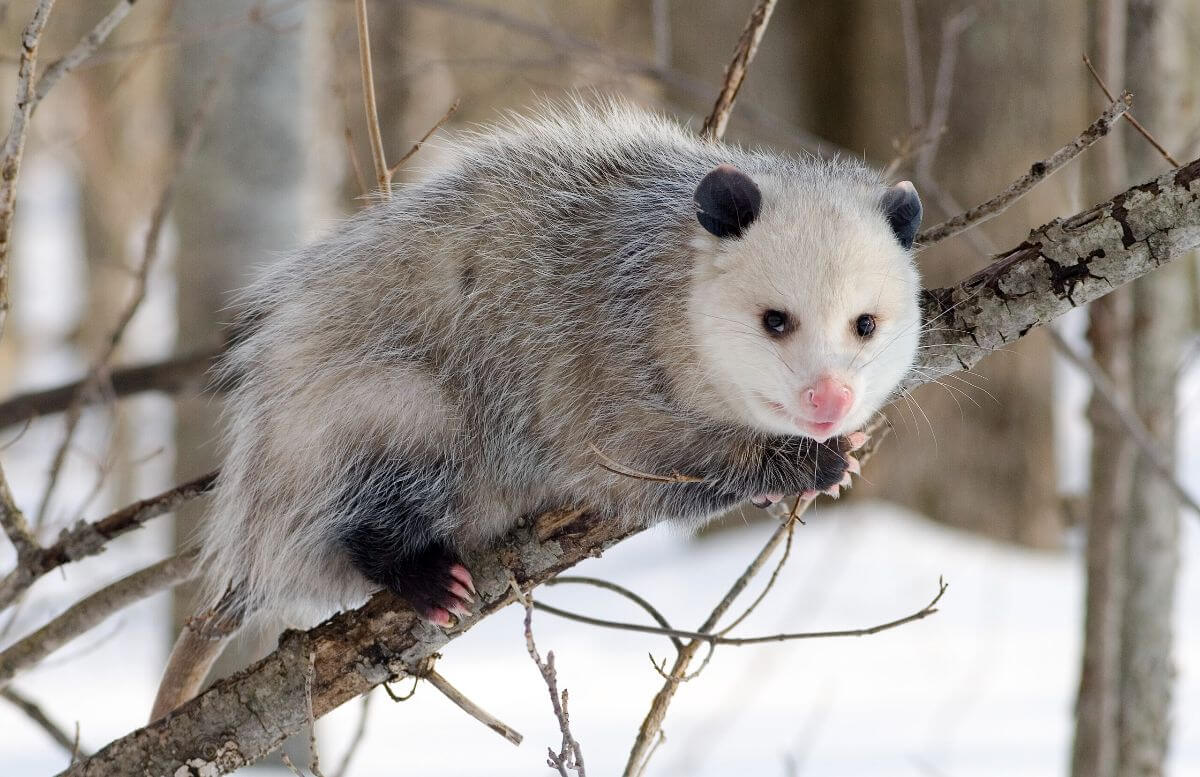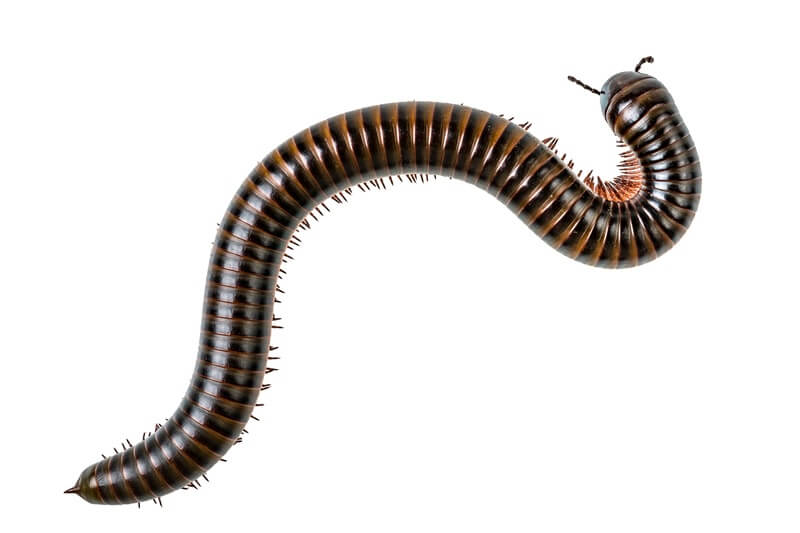That unmistakable smell hits you like a wall when you step outside. Your yard suddenly reeks of rotten eggs mixed with garlic, and you know exactly what happened. A skunk has been here, and they left their signature calling card.
Understanding why skunks spray in your yard can help you prevent future encounters and protect your family and pets from getting caught in the crossfire. Skunks don’t actually want to spray you or stink up your property. They only use their powerful scent as a last resort when they feel they have no other choice.
Here are the most common reasons skunks spraying in your yard becomes a problem for homeowners.
1. They Feel Threatened by Predators or Perceived Threats
When skunks feel cornered or scared, spraying becomes their go-to defense move. Their black and white stripes work like a warning sign to tell predators to back off, but sometimes that message doesn’t get through.
Dogs are the biggest culprits when it comes to skunk encounters in yards. Unlike other animals that recognize skunk warning signs, dogs tend to rush right up to skunks like they would with any other furry creature. This friendly approach triggers the skunk’s defense system, and nobody wins in that situation.
Before skunks resort to spraying, they give plenty of warning signals. They’ll stomp their front feet, hiss loudly, raise their tail high in the air, and even look directly at whatever is threatening them. If these warnings get ignored, the skunk will turn around and let loose with their spray.
Skunks can accurately hit targets up to 15 feet away and can spray up to six times before they run out of ammunition. Once they use up their spray supply, it takes about two weeks for their bodies to make more. During this vulnerable time, they really don’t want to waste their defensive weapon on false alarms.
2. It’s Mating Season and Males Are Fighting Over Females
February through March brings romance to the skunk world, but it also brings a lot more spray incidents. This is when you’re most likely to smell why skunks spray in your yard even if you never see the actual animals.
Male skunks travel up to six miles looking for female partners during breeding season. When multiple males compete for the same female, fights break out and spray starts flying. Female skunks also use their spray to reject males they’re not interested in, creating even more stinky situations.
The cold weather determines exactly when mating season starts. Mild winters get skunks moving earlier in February, while harsh winters can push breeding activities into April. Either way, expect more skunk activity and stronger odors during these months.
Wildlife removal becomes much trickier during mating season because both male and female skunks act more aggressively than usual. Pregnant females especially become protective and defensive, making them more likely to spray at any perceived threat.
3. A Mother Skunk Is Protecting Her Young Kits
Mother skunks take protecting their babies very seriously. From April through June, when baby skunks are born and growing up, mama skunks become much more trigger-happy with their spray.
Baby skunks, called kits, stay in underground dens with their mothers for about eight weeks after birth. During this time, the mother skunk will spray at any sign of danger to keep threats away from her vulnerable babies. She’s basically running on high alert mode 24/7.
Unlike many animal fathers, male skunks don’t stick around to help raise their young. This leaves all the protection duties to the mother, making her extra defensive during the spring and early summer months.
Kits eventually leave their mother when they’re ready to mate at around one year old. Until then, any disturbance near a den site can trigger a defensive spray response from the protective mother.
4. Young Skunks Spray More Often Than Adults
Baby and teenage skunks haven’t learned to control their spray the way adult skunks have. Young skunks are more likely to spray when they get scared or feel threatened, even in situations where an older skunk might just walk away.
Skunks develop the ability to spray very early in life. Some babies can produce a musky smell when they’re just a few weeks old, though they can’t control it very well yet. By around three months old, young skunks have fully working spray equipment, but their aim still needs practice.
The spray response in young skunks often comes from panic rather than calculated defense. They haven’t learned to read situations properly or give adequate warning signals before letting loose. This makes encounters with juvenile skunks more unpredictable and potentially messy.
By the time young skunks reach six months old and start living on their own, they’ve usually figured out how to aim accurately and when spraying is really necessary. Until then, they’re basically walking around with a hair trigger on their defense system.
5. They’re Startled by Sudden Noises or Motion
Skunks have poor eyesight but excellent hearing, which means sudden loud noises can send them into panic mode. This is one of the main reasons why skunks spray in your yard even when no real threat exists.
Motion-activated sprinklers designed to keep animals away can backfire by startling skunks into spraying before they retreat. The sudden burst of water and noise catches them off guard, triggering their defense response. The same thing happens with motion sensor lights that turn on unexpectedly.
People often get sprayed when they walk through their yards in the dark without warning. Since skunks can’t see very well, they rely on their other senses to detect danger. A person suddenly appearing can seem like a predator attack to a surprised skunk.
The best way to prevent startling encounters is to make noise before entering your yard, especially at night. Turn on lights, talk loudly, or stomp your feet to give any skunks in the area time to escape before you get too close.
6. They’re Foraging for Food and Feel Cornered
Skunks love digging for grubs, insects, and earthworms in yards and gardens. When they’re focused on feeding, they become less aware of their surroundings and more likely to feel trapped if someone approaches.
A yard with grub problems becomes like an all-you-can-eat buffet for skunks. They’ll dig small holes about two inches wide all across the lawn, creating damage that looks like someone used a rototiller on the grass. Fall rains make this worse by bringing worms closer to the surface.
Skunks also get attracted to easy food sources like pet food left outside, accessible garbage cans, and fallen fruit from trees. When they’re busy eating, they don’t want to give up their meal without a fight.
Interrupting a feeding skunk often leads to defensive spraying because the animal feels cornered and protective of its food source. The skunk sees the interruption as a threat to its survival, making spray more likely than retreat.
7. They’re Defending Their Den Site or Territory
When skunks establish a home base in or near your property, they become territorial about protecting that space. Common den locations include areas under porches, decks, sheds, and other structures that provide shelter and protection.
Skunks prefer den sites close to food sources and safe hiding spots. They often move into spaces under buildings because these areas give them protection from predators while keeping them close to yards full of insects and grubs.
During breeding season, both male and female skunks actively seek out and defend good nesting locations. Disturbing these areas can trigger protective spraying as the skunks try to defend their chosen territory.
Unlike some animals that abandon areas after being disturbed, skunks may return to the same den sites year after year. This territorial behavior means ongoing spray problems if the den location isn’t properly addressed.
8. They Encounter Other Skunks in Territorial Disputes
While skunks normally don’t spray each other, territorial fights during mating season can be an exception. When multiple skunks compete for the same area or resources, spray battles can break out.
Increased skunk activity during breeding season leads to more encounters between different skunks. Males fighting over females or territory may resort to spraying each other when other dominance displays don’t work.
Areas with multiple food sources or good den sites can attract several skunks at once, increasing the chances of territorial conflicts. These disputes often happen at night when skunks are most active, leaving property owners to wake up to the aftermath.
Understanding why skunks spray in your yard helps explain why some properties seem to have ongoing odor problems while others rarely experience skunk encounters. Multiple skunks in one area naturally leads to more spray incidents.
The Science Behind the Stink
Skunk spray gets its horrible smell from sulfur-containing chemicals called thiols and thioacetates. These compounds create that distinctive rotten egg odor that can travel for miles and stick to everything it touches.
Each skunk carries enough spray for about five to six defensive shots before they need to reload. The reloading process takes 10 to 14 days, during which time the skunk becomes much more vulnerable to predators. This is why skunks really don’t want to waste their spray on unnecessary threats.
The spray itself is actually a yellow, oily substance that skunks can shoot with surprising accuracy up to 15 feet away. They aim for the eyes and face of threats, where the spray causes the most discomfort and disorientation.
Preventing Skunks Spraying in Your Yard
The best way to prevent spray incidents is to make your property less attractive to skunks in the first place. Remove food sources like pet food, fallen fruit, and accessible garbage. Treat your lawn for grubs to eliminate their favorite food source.
Light works as an excellent skunk deterrent because skunks are nocturnal animals with very sensitive eyes. Motion-activated lights can help, but they should be set up carefully to avoid startling skunks into spraying.
Before letting pets outside, especially at night, make noise to alert any skunks in the area. Give them time to leave before your dog or cat goes out to play or use the bathroom.
Seal off potential den sites under porches, decks, and sheds with hardware cloth or other barriers. This prevents skunks from setting up permanent residence on your property.
Living with Skunks in Your Neighborhood
Skunks actually provide benefits to homeowners by eating insects, grubs, and small rodents that can damage yards and gardens. They help control pest populations naturally without the need for harmful chemicals.
Most skunk encounters can be avoided by understanding their behavior and taking simple precautions. Skunks generally want to avoid humans as much as humans want to avoid them.
If you do encounter a skunk in your yard, move away slowly and quietly. Don’t make sudden movements or loud noises that might startle the animal into spraying. Give the skunk plenty of space and time to leave on its own.
Remember that skunks only spray as a last resort when they feel they have no other options. By respecting their space and removing attractants from your property, you can greatly reduce the chances of experiencing why skunks spray in your yard firsthand.

